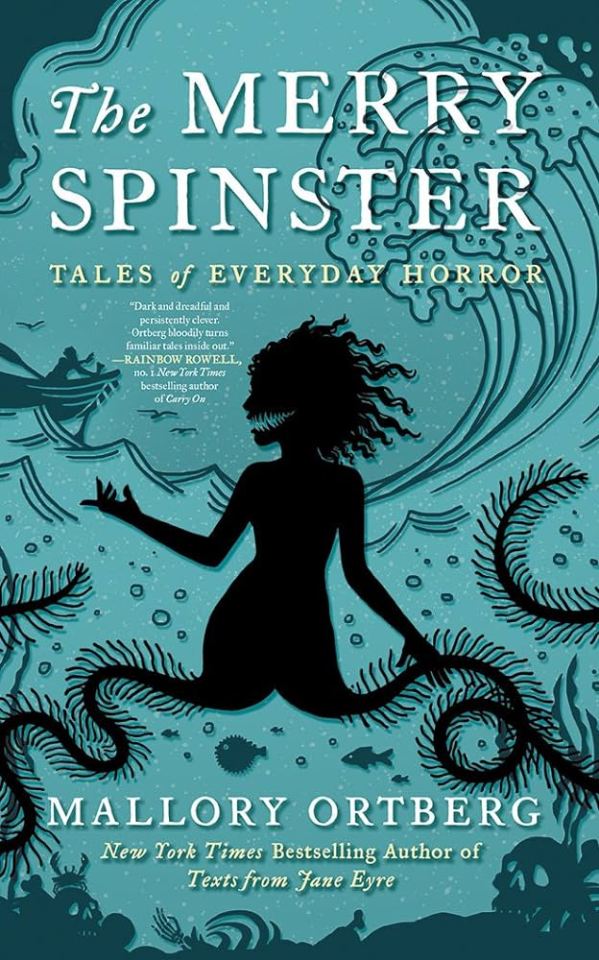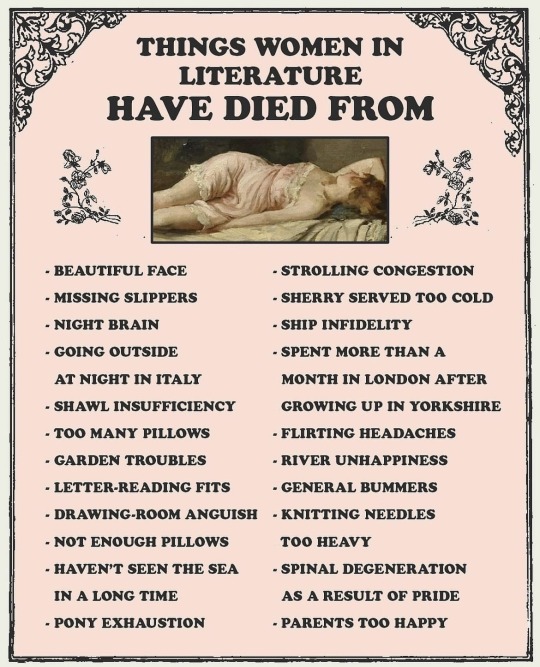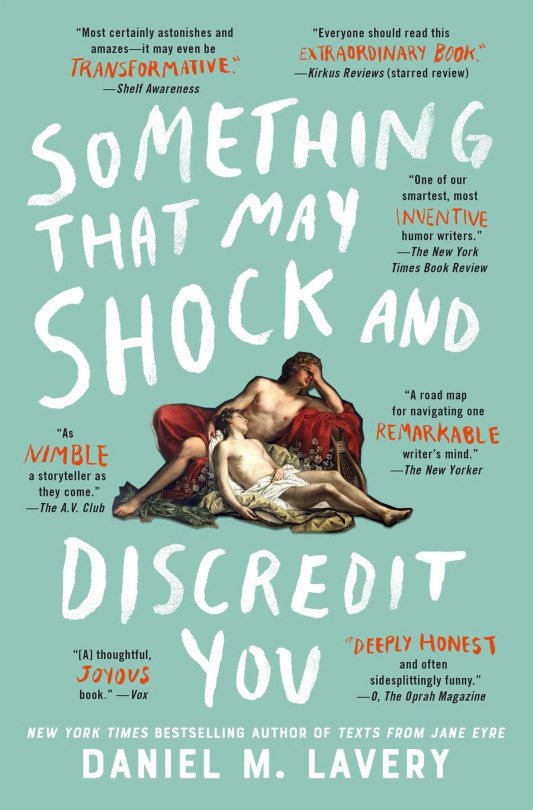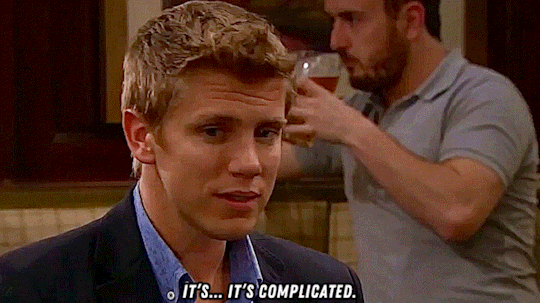#daniel m. lavery
Explore tagged Tumblr posts
Text



#HAD to add the addition from my oomfie calicocritters bc it just seemed incomplete w out it now#daniel m. lavery#nicole krauss#parallels#m
3K notes
·
View notes
Text
everyone's trans in the last unicorn
Oops it's the supermoon and I stayed up all night writing what'll have to be the first of 2-3 effortposts on transness and gender roles in Peter S. Beagle's The Last Unicorn. This one is about the three main characters' trans-coded introductions, plus Daniel M. Lavery's 2017-2020 writing on transition as intertexts/reception of the book. All the rest under the cut.
"We all know the unicorn and Molly Grue are transgender," I said flippantly to @literarymagpie yesterday, and it turns out maybe we do not all know this, so now it's finally time I write the essays I've been drafting in my head for five years about The Last Unicorn and the things Peter S. Beagle didn't know he knew.
My secondary source for this theme is Daniel Lavery, who, in his 2017 essay on gc2b binders, described the first stages of his transition as follows:
I knew nothing of the subject. I became aware of the subject. I immediately, and carefully avoiding too much direct thought about the matter, sought consummation with it. Since that day, the subject has rarely been far from my conscious thoughts. It has felt, alternately and sometimes simultaneously, thrilling, calming to the point of near-stupor, destabilizing, reassuring, necessary, mundane, intrusive, overwhelming, compulsory, and desirable.
Beagle's last unicorn lives in a lilac wood, and she lives all alone, oblivious and content for over a century. Upon overhearing that there may be no other unicorns left, she considers her identity and questions her place in the world for the first time. Here she is on pp. 6-7, quite certain at first that she belongs in her familiar forest:
"Oh, I could never leave this, I never could, not even if I really were the only unicorn in the world. I know how to live here, I know how everything smells, and tastes, and is."
[...]But suppose they are hiding together, somewhere far away? What if they are hiding and waiting for me?
From that first moment of doubt, there was no peace for her; from the time she first imagined leaving her forest, she could not stand in one place without wanting to be somewhere else. She trotted up and down beside her pool, restless and unhappy. Unicorns are not meant to make choices. She said no, and yes, and no again, day and night, and for the first time she began to feel the minutes crawling over her like worms.
I'm not even sure I want hormones. I'm pretty sure I don't want them, because I think about going on hormones all the time, and those thoughts always end in some variation of "I can't, not ever," and if I really wanted to try hormones obviously I wouldn't keep thinking about how I can't try them. I think about them all the time and have to constantly stop myself, so I must not really want them. You know how when you're profoundly curious and sick with longing about something, it usually passes pretty quickly.
—Lavery again, from Something That May Shock and Discredit You, "The Stages of Not Going on T" (p. 60).
Speaking of T and not going on it, Beagle's next introduced main character is Schmendrick. Schmendrick is a wizard living in an insecure, stagnant, uncomfortable state that is explicitly symbolized by the fact that he can’t grow a beard and would like to. I don’t even need to make a case here. (I will anyway, though, in another installment.)
Our other main ally is Molly Grue, "a thin thorn of a woman" who stands out as the steel spine of Captain Cully's otherwise all-male, ridiculous crew. She's tough, smart, grizzled, kicked around by life. Her relationship with Cully is ambiguous; her feelings are clearly not warm. When Schmendrick scatters the merry men with a chaotic summoning, Molly's the only one to land on her feet and follow him into the wood.
Then she saw the unicorn. She neither moved nor spoke, but her tawny eyes were suddenly big with tears. [...] "Where have you been?" she cried. "Damn you, where have you been?" She took a few steps toward Schmendrick, but she was looking beyond him, at the unicorn. [...] "Where have you been?" Before the whiteness and the shining horn, Molly shrank to a shrilling beetle, but this time it was the unicorn's old dark eyes that looked down. "I am here now," she said at last. Molly laughed with her lips flat. "And what good is it to me that you're here now? Where were you twenty years ago, ten years ago? How dare you, how dare you come to me now, when I am this?" With a flap of her hand she summed herself up: barren face, desert eyes, and yellowing heart. "I wish you had never come, why do you come now?" The tears began to slide down the side of her nose. The unicorn made no reply, and Schmendrick said, "She is the last. She is the last unicorn in the world." "She would be," Molly sniffed. "She would be the last unicorn in the world to come to Molly Grue." She reached up then to lay her hand upon the unicorn's cheek; but both of them flinched a little, and the touch came to rest on the swift, shivering place under the jaw. Molly said, "It's all right. I forgive you." "Unicorns are not to be forgiven." The magician felt himself growing giddy with jealousy, not only of the touch but of something like a secret that was moving between Molly and the unicorn. "Unicorns are for beginnings," he said, "for innocence and purity, for newness. Unicorns are for young girls." Molly was stroking the unicorn's throat as timidly as though she were blind. She dried her grimy tears on the white mane. "You don't know much about unicorns," she said.
(pp. 96-98)
It leaps out to me that the crux of Schmendrick's jealousy is not the wish that he could touch a unicorn. More emphasis is placed on his envy of Molly's emotional experience—the recognition, the sobbing relief. Schmendrick needs this magnitude of affirmation too, but won't get it until the end of the book, and from a different front. More on his weird gender stuff in the second and probably third installments of this that I have to write next.
I'm not the only one to note this scene's transgender resonance. I first got it, once again, from Lavery, who borrowed Molly's despairing cry for a monologue in Something That May Shock and Discredit You. "Do You Know Athena Used to Be a Tomboy?" spoofs transphobic responses to trans men coming out, Greek drama style: the listener is "encouraged" to remain a woman by the goddess Athena (I didn't want to be a girl either, but then I learned to love myself, and to become the tutelary of Athens. Have you tried being the tutelary of Athens?); a Chorus: ("Well, of course we'd all be trans now, wouldn't we? Anyone born nowadays, that's just a given, they just—someone tells you at school, or something—everyone's trans now."); and a Deuteragonist, whose concern-trollish speeches gradually reveal more and more intense personal gender anxieties. From the final meltdown (pp. 188-189):
I mean, if I were thirty years younger—if I were twenty-five years younger—if I were eighteen years younger—God, if I were just ten years younger—if I were a year and a day younger—if you'd asked me just five minutes ago, four and a half even, if I'd picked up on the first ring instead of the third, I'd transition. Hell, I'd transition. Oh my God, I wish I could transition. Ask me again, but sooner. Come back yesterday. Come back a week ago. What good are you to me now, when I am—this? Where were you when there was still summer in my heart? Come back a month ago, a decade, but come back to me before I had to forgive you. Just come back and ask again; I'll wait if it takes forever this time.
I don't have much to add to that, really.
Next post will have to talk about the transformation of Amalthea. I'm not the first to observe that it's a potent dysphoria metaphor, but I've got more to unpack about Schmendrick's perspectives if he's trans, and there's a lot to dig into re. the love story with Prince Lir. I've also got some intense takes cooking on the tower scene with Haggard, if I get there. Anyway, thanks for reading! And thanks @endetithei for sharing this book with me as much as you have. (Sorry that this is how you'll find out I was up all night.)
#the last unicorn#last unicorn#long post#daniel lavery#daniel m. lavery#endetithei#literarymagpie#wiz writing#schmendrick#molly grue#peter s. beagle
22 notes
·
View notes
Text
"I tried apologizing to my mother when I told her I was not just "figuring some things out" but transitioning. It was one thing to be a man, or wish to be a man, or live as a man, in a coffee shop with a friend or alone in my apartment or out in public, but to be a man in relation with my mother meant being not-her-daughter. A person is not-a-daughter in their own right; they are a daughter to and of someone else, and as much as I knew my gender was my own, that my vocation was assured, that self-determination mattered more to me than external validation--still if I could have transitioned while remaining her daughter, I would have wanted to do so. I wanted to promise that I would not change in relation to her, that I remained grateful for the girlhood she had given me, that her affection for my former embodiment, my former name, would not hurt me, that if I could have stayed a woman a minute longer I would have done it.
I wanted to promise that this would be the last change, that I would never make excessive demands on the people who I believed were bound to love me, believing as I did that their loving and my changing was somehow a rupture or a violation of the agreement I had entered into by being born. I thought often of Jacob and Esau. Of all the brothers in Genesis who deny and disinherit one another, they are the first to reconcile. Cain flees from the body of Abel, Isaac and Ishmael are parted as children and never meet again, but Jacob and Esau make peace. Before they make peace, Jacob changes his name."
Daniel M. Lavery / Something That May Shock and Discredit You (2020)
36 notes
·
View notes
Text

#short story collection#short story collections#the merry spinster tales of everyday horror#the merry spinster: tales of everyday horror#daniel m lavery#daniel m. lavery#english language literature#american literature#21st century literature#have you read this short fiction?#book polls#completed polls
10 notes
·
View notes
Text

c/o dreambabypress - instagram. Original list by Daniel M. Lavery.
#flirting headaches#letter reading fits#drawing room anguish#ship infidelity#these are amazing#things women in literature have died from#dreambabypress#daniel m. lavery#literature#classic literature
7 notes
·
View notes
Text
Something That May Shock and Discredit You by Daniel M. Lavery

From the New York Times bestselling author of Texts From Jane Eyre and Merry Spinster, writer of Slate’s “Dear Prudence” column, and cofounder of The Toast comes a hilarious and stirring collection of essays and cultural observations spanning pop culture—from the endearingly popular to the staggeringly obscure.
Daniel M. Lavery is known for blending genres, forms, and sources to develop fascinating new hybrids—from lyric rants to horror recipes to pornographic scripture. In his most personal work to date, he turns his attention to the essay, offering vigorous and laugh-out-loud funny accounts of both popular and highbrow culture while mixing in meditations on gender transition, family dynamics, and the many meanings of faith.
From a thoughtful analysis of the beauty of William Shatner to a sinister reimagining of HGTV’s House Hunters, and featuring figures as varied as Anne of Green Gables, Columbo, Nora Ephron, Apollo, and the cast of Mean Girls, Something That May Shock and Discredit You is a hilarious and emotionally exhilarating compendium that combines personal history with cultural history to make you see yourself and those around you entirely anew. It further establishes Lavery as one of the most innovative and engaging voices of his generation—and it may just change the way you think about Lord Byron forever.
#something that may shock and discredit you#daniel m. lavery#transmasc#trans book of the day#trans books#queer books#bookblr#booklr
23 notes
·
View notes
Text
Do not rise above it. Never rise above anything. The sky is no place for a human.
— Daniel M. Lavery, How To Respond To Criticism
41 notes
·
View notes
Text
WHY YOU ARE ANGRY: CHOOSE ONE
YOU DEMAND THAT EVERYONE YOU MEET IS EITHER INSTANTLY IMPRESSED WITH OR INTIMIDATED BY YOU AND HAVE DECIDED IF YOU EVER WALK INTO A ROOM WITHOUT A SUFFICIENTLY ADMIRING RECEPTION IT IS BECAUSE THEY HAVE ALREADY REJECTED YOU
INCAPABLE OF DISTINGUISHING BETWEEN REASONABLE, JUSTIFIED INDIGNATION AND FREE-FLOATING, TARGETLESS RAGE THAT THERE IS THE SLIGHTEST GAP BETWEEN YOUR DESIRES AND REALITY
CONSTANTLY “DOING FAVORS” FOR PEOPLE WHEN THEY DON’T ASK YOU TO THEN FEELING OVERLOOKED WHEN THEY DO NOT RECIPROCATE EVEN THOUGH THEY MADE IT CLEAR FROM THE BEGINNING YOU WERE SHOULDERING A BURDEN NO ONE INVITED YOU TO PICK UP
REPEATEDLY CONFUSED “STOICISM” WITH “QUIETLY FUMING”
YOU THINK YOU DESERVE EVERYTHING BUT ASK FOR NOTHING
YOU’VE SO SUCCESSFULLY CUT YOURSELF OFF FROM MAKING YOUR FEELINGS CLEAR TO OTHER PEOPLE THAT SELF-RIGHTEOUS INDIGNATION IS THE LAST AND ONLY JUSTIFIABLE EMOTION YOU HAVE ACCESS TO AND IT MAKES YOU FEEL LIKE YOU HAVE A PURPOSE AND CLEAR SET OF GOALS LIKE NOTHING ELSE IN YOUR LIFE
LOVE WATCHING OTHER PEOPLE HAVE TO REACT TO YOU AND HAVE LEARNED EARLY AND FREQUENT OUTBURSTS OF TEMPER IS THE QUICKEST WAY TO MAKE SURE YOU NEVER HAVE TO REACT YOURSELF
INCAPABLE OF ABSORBING A SINGLE PIECE OF CRITICISM WITHOUT SUBSEQUENTLY FEELING THAT THERE IS SOMETHING FUNDAMENTALLY WRONG WITH YOU AS A PERSON AND HAVE THEREFORE MADE AN ACTIVE DECISION THAT ANY AND ALL CRITICISM WILL KILL YOUR HEART STONE DEAD AND MUST BE REJECTED AND PUSHED OUTWARD AT ANY AND ALL COST, LEST YOU CEASE TO EXIST AS YOURSELF
NURTURING GRUDGES IS THE MOST MATERNAL YOU HAVE EVER FELT AND IT MAKES YOU FEEL LOVED AND LOVING TO BRING YOUR GRUDGES OUT AND CAREFULLY NURSE THEM
VICIOUSNESS DELIGHTS YOU AND YOU SPEND THE MAJORITY OF YOUR TIME CONJURING SATISFACTORY EXCUSES FOR CAUSING HARM WITH JUSTIFICATION
NOT YET FREE OF THE DELUSION THAT MAKING SOMEONE ELSE FEEL GUILTY FOR THEIR BAD HABITS IS AN EFFICIENT WAY OF ENDING A BAD HABIT
YOU HAVE MISTAKEN “SUDDEN EMOTIONAL WITHDRAWAL” FOR “TAKING THE HIGH ROAD”
NEVER TOOK THE TIME TO FIND YOUR OWN BREAKING POINT AND ONLY LEARN WHERE IT IS WHEN SOMEONE ELSE HELPS YOU REACH IT
HAVE MISTAKEN “CONTROL” FOR “SILENCE” AND “SILENCE” FOR “PEACE”
ALWAYS LOOKING FOR AN EXCUSE TO SAY THE UNFORGIVABLE THING YOU KNOW WILL END A RELATIONSHIP AND HAVE BEEN PLANNING IN COLDNESS BUT SPEAK IN THE HEAT OF THE MOMENT AND USE THAT MOMENTUM AS AN EXCUSE FOR SOMETHING YOU ALWAYS BELIEVED AND WERE MERELY TOO COWARDLY TO SAY WITHOUT THE EXCUSE OF EMOTIONAL MOMENTUM
WHY ARE YOU ANGRY: A TEXT GAME by Daniel Ortberg
#mine#daniel ortberg#daniel lavery#daniel m. lavery#words#i couldnt find this on here but i love it so much
4 notes
·
View notes
Text
30 Days of Literary Pride 2023 - June 16

Something That May Shock and Discredit You - Daniel M. Lavery
4 notes
·
View notes
Text
Profiles of Pride: June 27th! 🏳️🌈Daniel M. Lavery🏳️🌈
Daniel M. Lavery (born November 28, 1986) is an American author and editor. He is known for having co-founded the website The Toast, and written the books Texts from Jane Eyre (2014), The Merry Spinster (2018), and Something That May Shock and Discredit You (2020). He wrote Slate's "Dear Prudence" advice column from 2016 to 2021. As of 2022, he hosts a podcast on Slate titled Big Mood, Little Mood. In 2017, he started a paid e-mail newsletter on Substack titled Shatner Chatner, renamed to The Chatner in 2021.
Lavery grew up in northern Illinois and then San Francisco, one of three children of the evangelical Christian author and former Menlo Church pastor John Ortberg and Nancy Ortberg, who is also a pastor and the CEO of Transforming the Bay with Christ. He attended Azusa Pacific University, a private, evangelical Christian university in California. While a student, Lavery appeared on Jeopardy!, Show #5816 of Monday, December 21, 2009, and finished in third place.
Lavery has credited the work of Shirley Jackson and her novel We Have Always Lived in the Castle, in particular, and John Bunyan's The Pilgrim's Progress as influential.
Lavery identifies as queer. In February 2018, he spoke to Autostraddle about the process of gender transitioning while writing The Merry Spinster. In March 2018, he was interviewed by Heather Havrilesky in New York magazine's The Cut about coming out as trans.
In November 2018, he and partner Grace Lavery, an associate professor of English at UC Berkeley and "the most followed transgender scholar in the world on social media" including Twitter and Instagram, announced their intention to marry. They were married on December 22, 2019.

#Daniel M. Lavery#Pride#Pride Month#June Pride#June 27th#Pride 2023#LGBTQIA+#Trans Pride#Trans Rights#Trans Rights Are Human Rights
1 note
·
View note
Text



The Stages of Not Going on T
From Something That May Shock And Discredit You by Daniel M Lavery
#books i'm reading#something that may shock and discredit you#daniel m lavery#trans masc#testosterone hrt#transgender#quotes
7K notes
·
View notes
Note
“One of the heaviest aspects of modern life is how strenuously everyone tries to compensate for the overreaches of the 1970s when it comes to prehistoric religious practices. A handful of sociologists got a little too excited about the possibility of a massive Bronze Age matriarchal religious network in the ‘70s (also the 1860s and 1940s), overreached themselves and published a lot of nonsense like When Eurasia Was Gaia’s Playroom and The Lathe of the Womb, The Rye of the Wheel and Hammer Sickle, Goddess Triple, and now the rest of us aren’t allowed to have hardly any druids at all …”
—Daniel M. Lavery
so back in 2005-2007 I was an anthropology major, I was told that matriarchies never existed. at the time my professor said that it was kinda sexist that anthropology thought that way. so I wonder if anything has changed since then. I'm not talking about the weird mother goddess cult that hippy 2 wave feminist wanted but like, people who say they are like the muoso (I'm sorry if I spelt that wrong), and other groups. I've heard several native Americans from varrying nation that said their culture was matriarchal, and if modern anthropologist are taught that the experts on society are the people in that society, why do/did anthropologist decided a matriarchal society was impossible. I know this could take a long time to answer so if it's too long for you maybe just some helpful links to an article if you know of one.
So the answer—as always, with anthropology—is complicated.

Saying that XYZ never happened is difficult, given that all it takes is one positive instance to disprove the statement. Yes, there certainly have been (and still are) matriarchal societies. (Please also keep in mind that matriarchal societies aren't inherently better that patriarchal societies based on that one trait alone.)
If I had to guess, what you were told was the product of several theological whiplashes in anthropological theory. And you are indeed correct: some of it has to do with Second Wave Feminism. Archaeology and anthropology have been unfortunately late to the ballgame, and feminism is one of those topics.
Basically, for a long time anthropology was dominated by rich white dudes who believed that men were the center of all anthropological innovations ever (more or less, this is the simplified version). Then in the 80s/90s, Second Wave feminists managed to break into the discipline and the stance went from everything is patriarchal to everything is matriarchal.
"Whoa," said the male anthropologists who were feeling Threatened™ "we don't like that at all." Which results in a second over-correction back to the insistence that there was nothing matriarchal. If I had to guess, this is the general series of events that found its way into your classroom in the mid 00s.
If you fancy a deep dive into a good example of early feminist anthropology, check out The Gender of the Gift: Problems with Women and Problems with Society in Melanesia by Marilyn Strathern (first published in 1988). Or, if you're not inclined to read the whole thing, just read the very last five pages titled Comparison. Or you can read a review of the book from shortly after it first came out.
Other anthropologists are encouraged to chime in, and especially tell me if I've said something wrong.
-Reid
726 notes
·
View notes
Text






and what did i do to ever deserve it
157 notes
·
View notes
Text
"I am tempted always to make some force or organization outside of myself responsible for my own discomfort, to retroactively apply consistency to my sense of self as a child, to wax poetic about something in order to cover up uncertainty, to overshare in great detail out of fear that the details will be dragged out of me if I don't volunteer them first, and to lapse into cliche in order to get what I want as quickly as possible."
Daniel M. Lavery / Something That May Shock and Discredit You (2020)
10 notes
·
View notes
Text

#sword stone table#arthuriana#daniel m lavery#knight is a humiliation-seeking device is so Jamie Lannister coded#he cannot be stopped#copybook
7 notes
·
View notes
Text
"[...] but that didn’t stop me from wishing all men were on bikes and beautifully lit up and riding around changing colors, and that the rest of us could all tell them how much we loved their vibes, and that I was always driving my friends home at the end of a really good night."
-Daniel M. Lavery, Something That May Shock and Discredit You
#something that may shock and discredit you#daniel m lavery#daniel lavery#really really cool read i would recommend it!#lavery makes a lot of biblical and pop culture references when talking about being trans. it rules#shelby speaks
5 notes
·
View notes